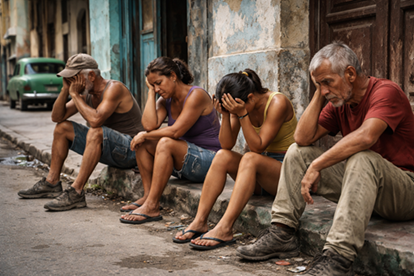
Globally, the participation of women and men in formal or informal decision-making structures differs between countries and is generally male-dominated. Many factors contend — cultural, economic, social, institutional, political and other forces combine to actively limit women’s equal access to power and decision-making.
The World Bank, in its 2012 World Development Report, cites the fact that entrenched social norms — belief systems — essentially male-dominated narratives, control how households, communities, countries and the world operate. The end result is the creation of a less than effective development model that falls way short of what could be accomplished economically, socially and otherwise.
Men have continued to enjoy and reap the benefits of inequality largely at the expense of curtailment of the rights of women’s and girls’ rights [this is referring to women’s uneven share of the unpaid care work that affects their rights to fully participate in development, politically, labour force, etc confirmed by many studies some noted here] to fully participate in all spheres of power and decision-making on an equal footing with men. Political, economic and social institutions carry and preserve this inequality and inequity from within the family/household where the global practice of women carrying an uneven share of the domestic and care work starts the inequality.
From this location, women’s unpaid work “makes the world work” and goes unrecognized, unvalued and ignored — not counted in the GDP of nations. Yet it is this US$28 trillion (McKinsey Global Institute, 2015) unremunerated work by women or the equivalent of 10% to 39% of a country’s GDP, according to UNRISD, that men take advantage of to continue to dominate the halls of power, whether in parliaments, the workplace, communities or the home.
Women and girls end up with a ‘time poverty’ that does not allow them to participate in building or effecting changes in legislatures or community decision-making structures as their male counterparts.
The ‘real-ness’ and the importance of this has become the focus of the Bill and Melinda Gates annual letter to the public and many financial institutions as well as governments. The balancing of our democracies towards the transformation of our societies so that equality and equity prevail, hinges on the fact of women and girls’ access to time to facilitate their meaningful participation in power and decision-making.
Regardless of the society — north, south, rich or poor — women’s increased meaningful participation causes economic growth, more effective national development, reduces poverty, generates peace and an overall more just and healthy society (UN Secretary General’s High Level Panel on Women’s Economic Empowerment).
In 2014, an unprecedented 169 countries submitted their reports to the UN on their progress with regard to gender equality, based on their commitments. The UN Under Secretary-General and Executive Director of UN Women noted that major changes are needed in economic and social institutions. The reports revealed that in countries with laws guaranteeing the protection and enjoyment by women and girls of their rights, and their implementation, substantive or lived, equality prevailed. [substantive equality is the lived/living the real experience of equality. We can have many laws purporting to ensuring women’s equal rights. If the law has neither an implementation plan nor the resources to carry out its implementation then it has no teeth and women do not live the benefits].
However, included in this process is the tackling of entrenched social norms that ‘supported inequality and inequity’. However, the long-term success of the process hinges on the full participation of women and girls in all spheres of decision-making.
In 2015, this was followed by more extensive reports on the progress towards achieving the 8 Millennium Development Goals (MDGs). 2 key priority goals were #s 1 & 3— eradication of poverty and the empowerment of women/equality of women. The bottom-line conclusion was that women’s poverty and the achievement of gender equality were “mutually reinforcing” — one depended on the other.
Again, the issue of “entrenched social norms” was cited as the greatest ‘underminer’ of efforts towards achieving gender equality and women’s equal participation, including access to key resources: land, jobs with decent pay and working conditions; new technologies; subsidies; affordable loans; access to education, health, social and other services; more even distribution of care responsibilities in the home and the community; inclusion in decision-making. But what does this mean in the case of Jamaica?
This article will focus on the key areas in which ‘the average’ Jamaican, male or female has the right to participate in and contribute. These rights are enshrined in all human rights conventions our country has sworn to uphold. These international conventions form the basis of our own laws. It will highlight data depicting how we ‘balance’ our democracy, in key locations and spaces of power in our society. The information used is accessible to the public on the various ministry websites and in JIS releases. The review period was April-September 2016.
A snapshot of the situation of women is included for relevance, especially within the context of Jamaica having the ”most austere budget” in the world, linked to IMF ‘conditionalities’. Are women’s and girls’ voices, experience, expertise, ideas, solutions taken into account? Where are we located, being valued in critically important decision–making spaces? Where are we represented/appointed etc] What is the picture in Jamaica’s governance arena?
3.0 ARE WE BALANCING OUR DEMOCRACY?
Next to serving as an elected MP or appointed senator, at the national level Jamaicans can contribute their skills and impact the national development plan through being a member of one of a number of public boards. These spaces, some MPs acknowledge, are important and where they “cut their teeth” in politics. Women and women’s organizations long concerned about the imbalance in women’s participation on public and private sector boards, school boards, as JPs, MPs, senators, in churches, and other civil society entities have called for changes.
In reviewing the public board selection criteria both the Government and the Opposition endorsed the following principle in September 2011 entitled: “Board Diversity and Equality Issues”. It states:
“The board should be composed of a diversity of skills, knowledge, qualifications, experience, gender and age to assist the public body in achieving its objectives and perform its functions to add optimal value to the public body. In the selection and nomination of members of boards, due consideration should be given to the promotion of diversity and equality of opportunity which can redound to the benefit of public bodies. Individuals from all sections of society have much to offer a public body by virtue of their diverse experience and background and their participation should be considered in an open, fair and transparent manner.”
Despite this commitment, just a cursory look at the main figures from the 2016 selection process tells us that the principle was not taken into account. 130 public bodies (boards, tribunals & commissions) were reviewed. 1,307 Jamaicans were newly appointed.
Of these:
468 or 35% were women and 839 or 65% were men.
23 women were appointed chairs of boards (or 17%) compared with 107 men.
An even deeper look revealed more troubling factors. As some may be aware, each ministry has a “Job Description” with boards also called subjects attached to them, ostensibly as oversight in conjunction with the minister. As an example, the ‘Super-Ministry’ — Economic Growth and Job Creation (MEGJC) — has 27 boards/subjects. Only 2 of them have female chairs. Other key ministries — Finance, 9 boards; Tourism, 5; and Science, Energy, Technology (& Telecommunications) [MSET], 10, have no female chair on their collective sum of 24 boards.
‘Subjects’ under MEGJC include: the Development Bank of Jamaica; Ex-IM Bank; The National Environment and Planning Agency (NEPA); the housing; water; and works and roads portfolios. All areas that directly impact women’s lives wouldn’t we think? Twelve boards have ALL male memberships, with one of them, Aeronautical Telecommunications Limited (AEROTEL), having had a female chair in the previous year (2015). This is the board with responsibility for the much enjoyed Kool FM and components of the airport.
Since 2008 when partnership of a diversity of women’s organizations, including the private sector, worked with development partners to document this information, the contours of the overall situation remain basically the same. Women are also typecast in terms of appointments to more “social service oriented” organizations — mimicking the job market. Basically, in addition to being over-represented in relatively lower-paying sectors such as teaching, nursing, and social services — the caring professions — women are also over-represented on boards linked to these issues, once more pushed to contribute more unpaid work in the care sector.
This despite the 100 women project, in which women from many walks of life participated in formal training and put themselves forward for service to the country. Yet, it is in the private sector that women must ask: ”Didn’t they get the memo??”
A 2007 report by PricewaterhouseCoopers (PwC) entitled,“Women’s Economic Participation: Enablers, Barriers, Responses”points out that, “In emerging economies, particularly growth economies such as China and India, rapid economic development makes it necessary to optimise all available human resources. In these countries, underutilising half of the potential workforce is no longer an acceptable option”
PwC was not only talking about hiring women “on the line” or in middle management, it was also talking about Leadership of companies — who is on your board. The PwC report is one of many released over the last decade or so by companies, business magazines, such as Catalyst (2004) and McKinsey (2008).
While welcoming this evidence of women’s participation in leadership and management as increasing companies’ bottom-line, women’s groups caution that their bottom-line is based in the human rights of women, that is women’s economic rights and the rights to participation in power and decision-making in all spheres.
But how are women in Jamaica faring in their involvement and/or leadership on private sector boards? And how does Jamaica rank globally in terms of women’s presence in the houses of Parliament.
Catch the next issue of Public Opinion to find out!
Joan Grant Cummings is a member of the 51% Coalition : Women in Partnership for Development and Empowerment Trevon Coley Womens Jersey



